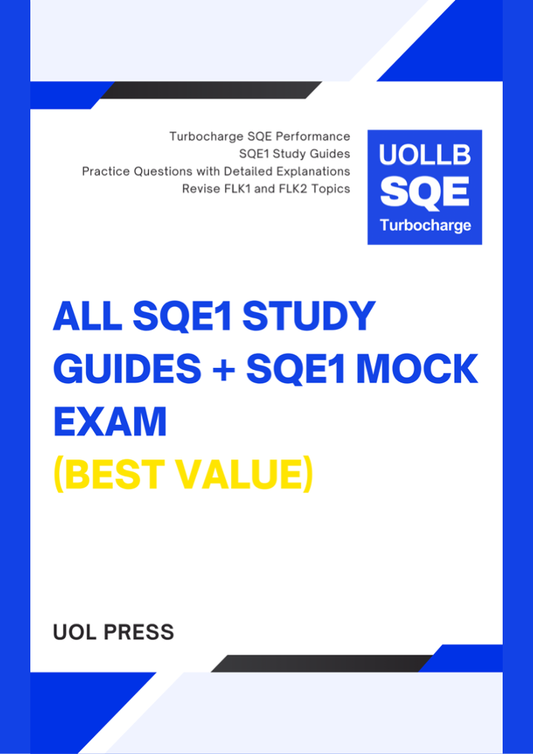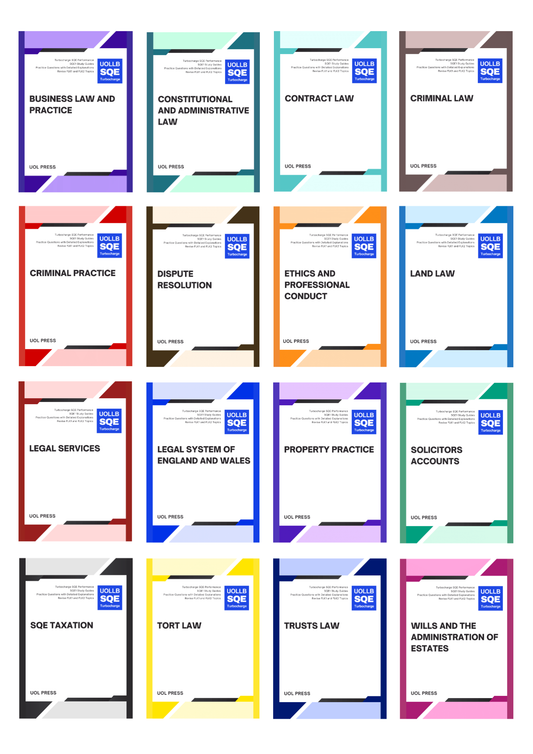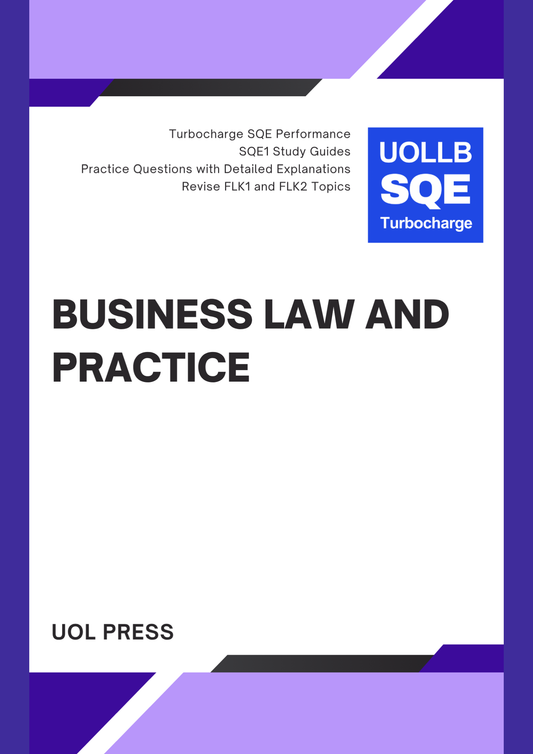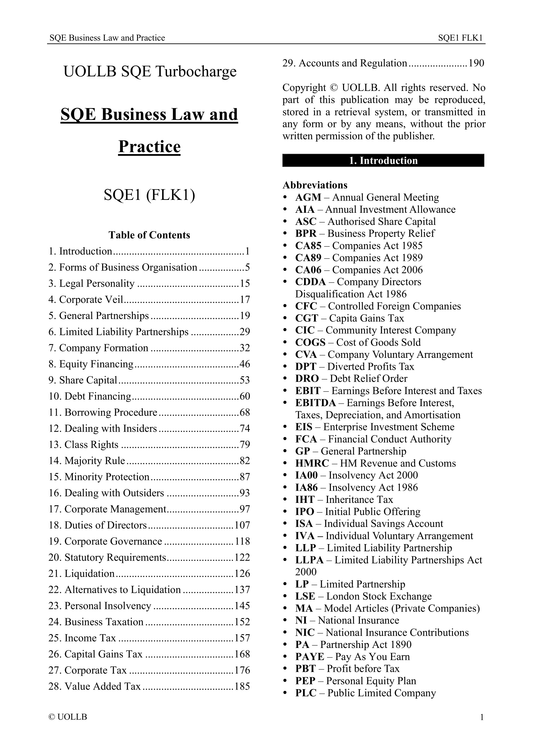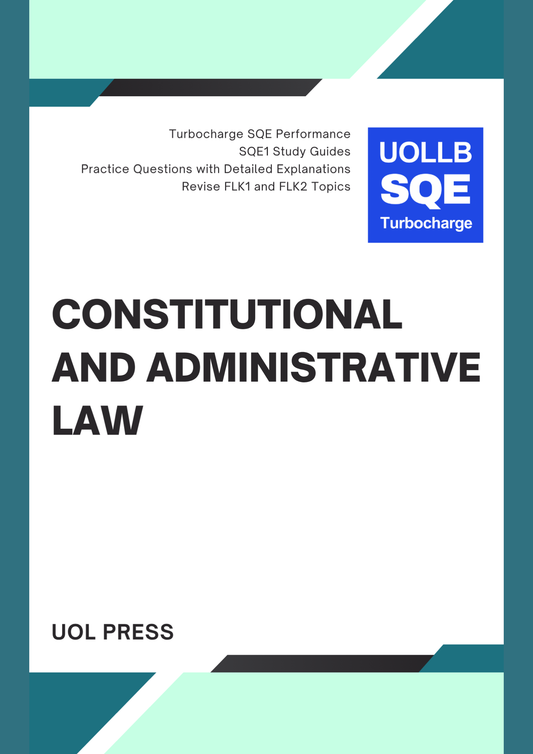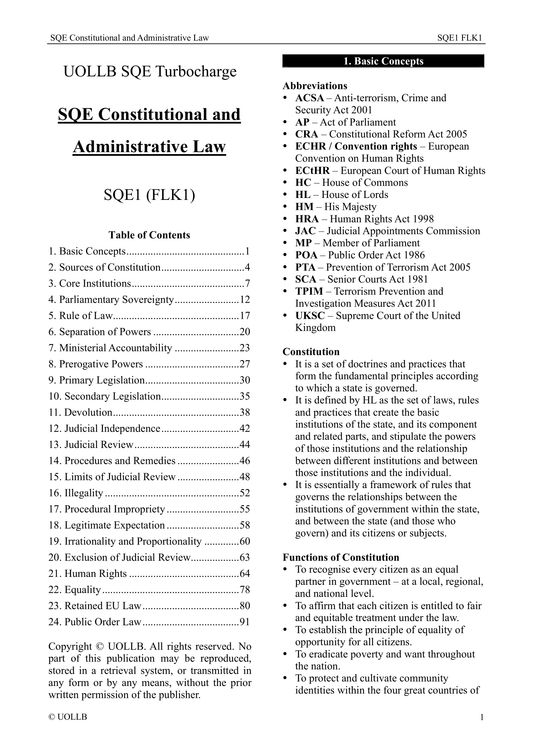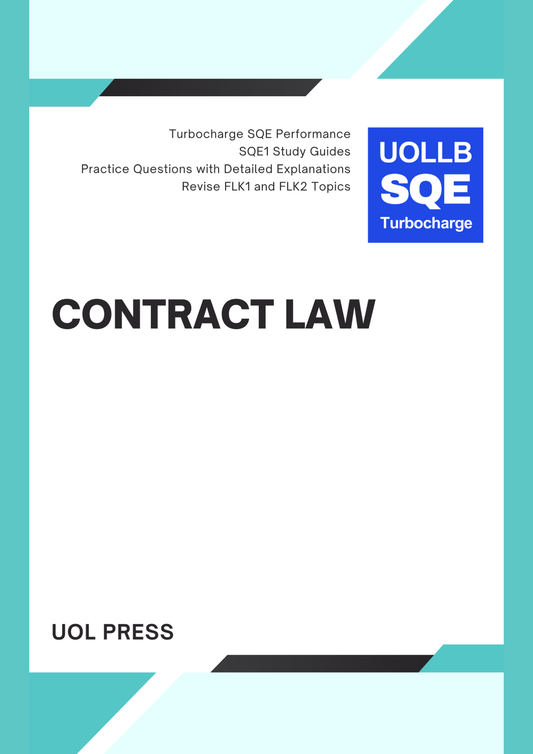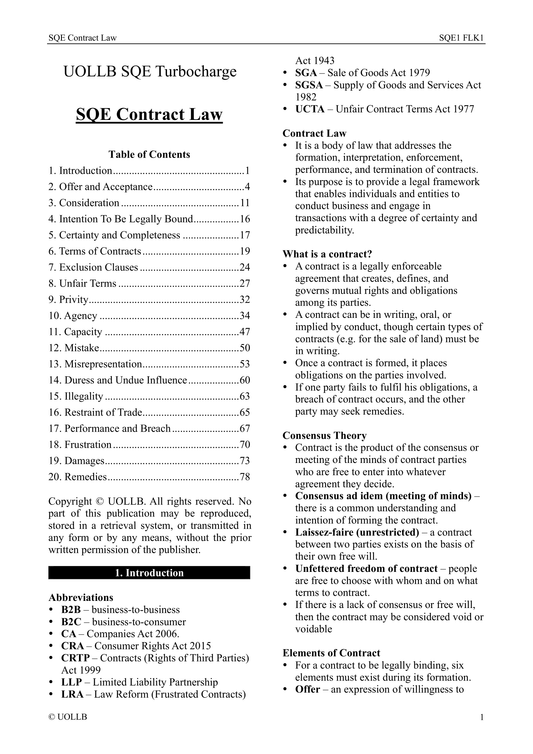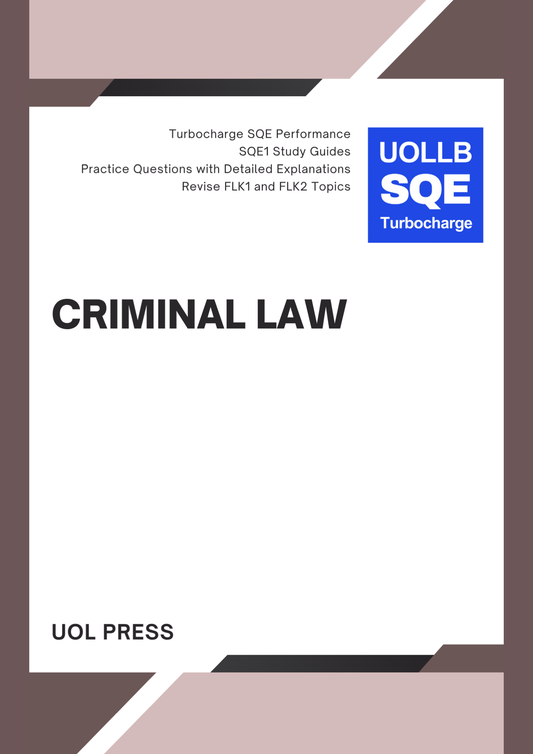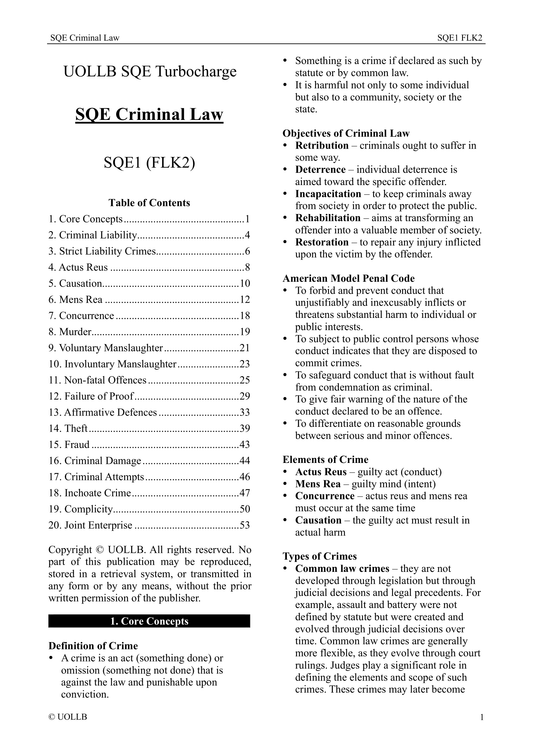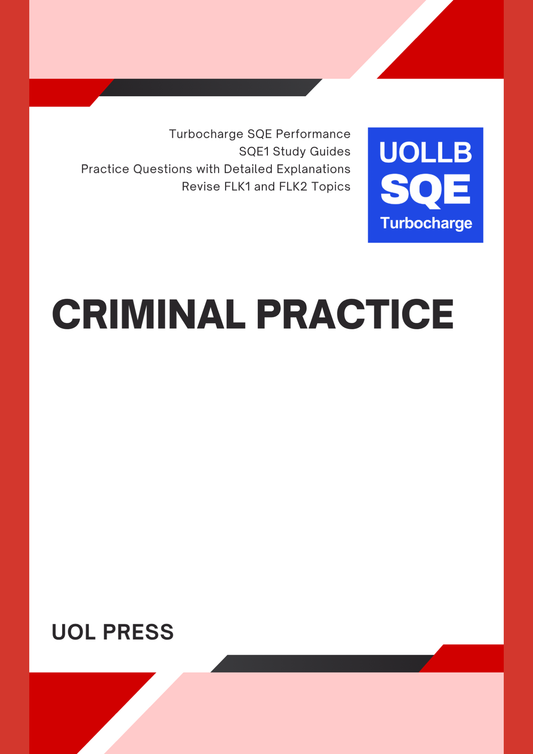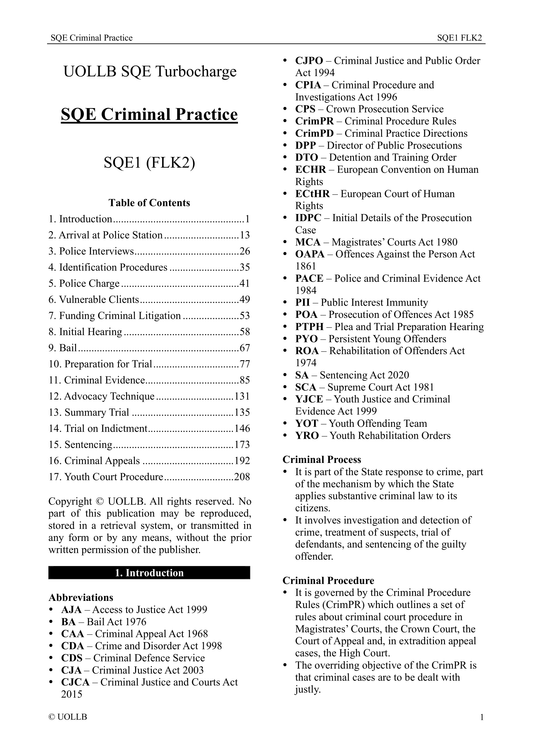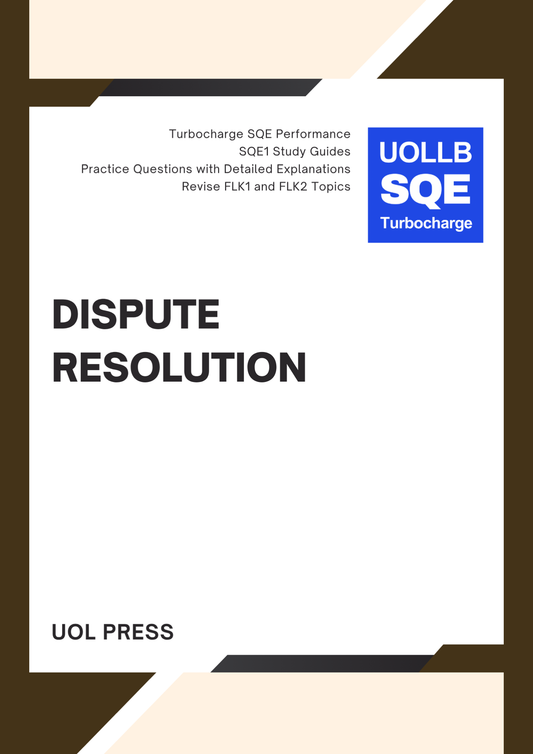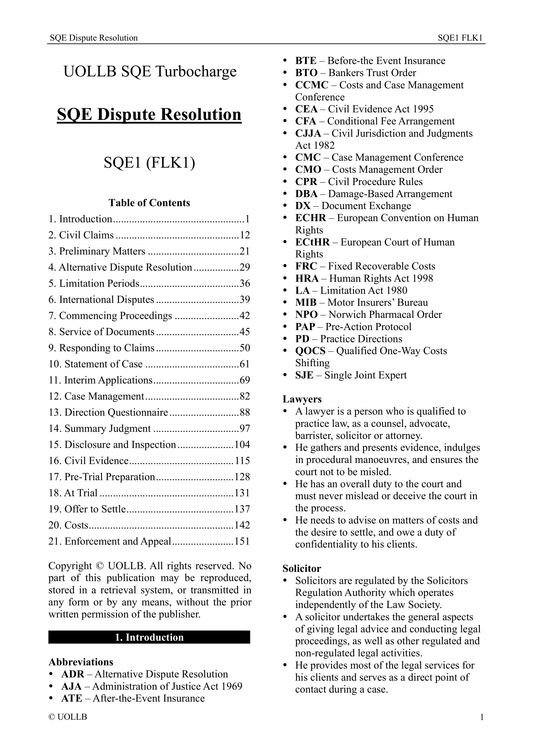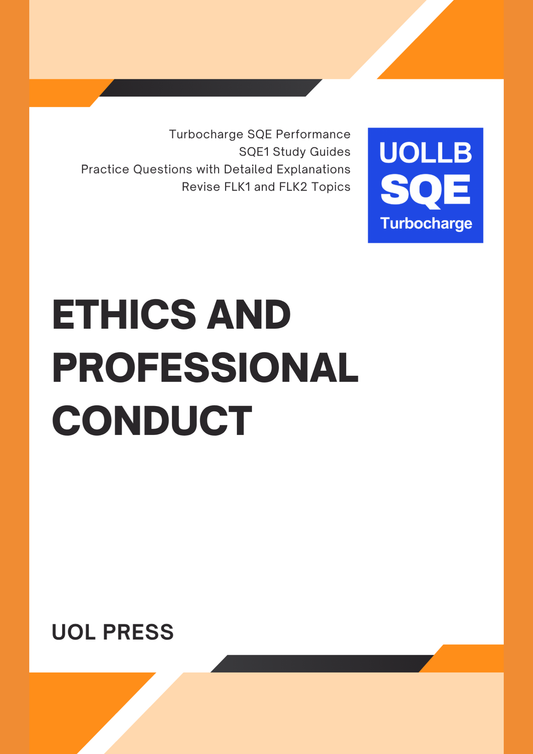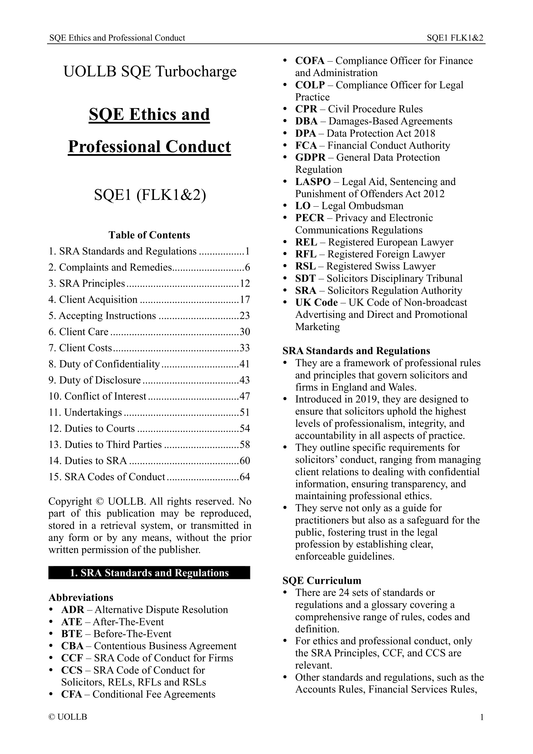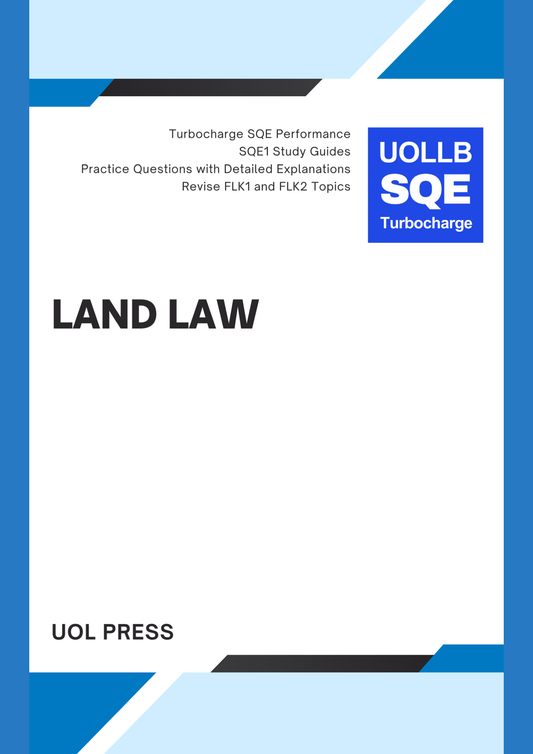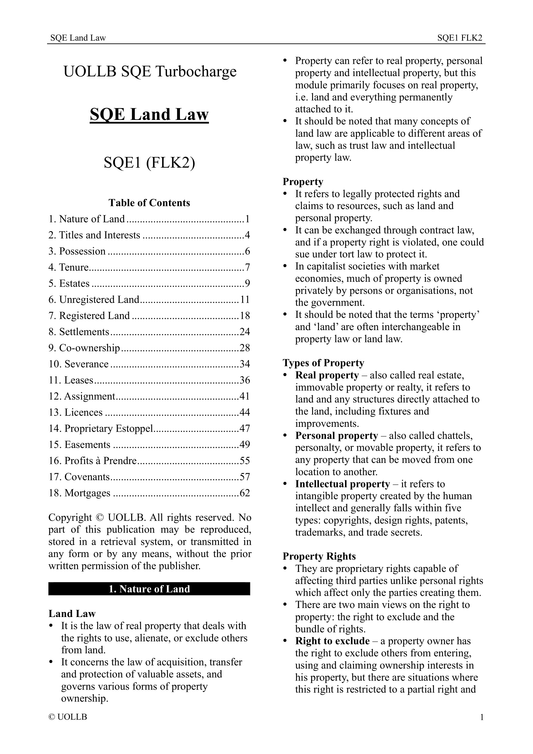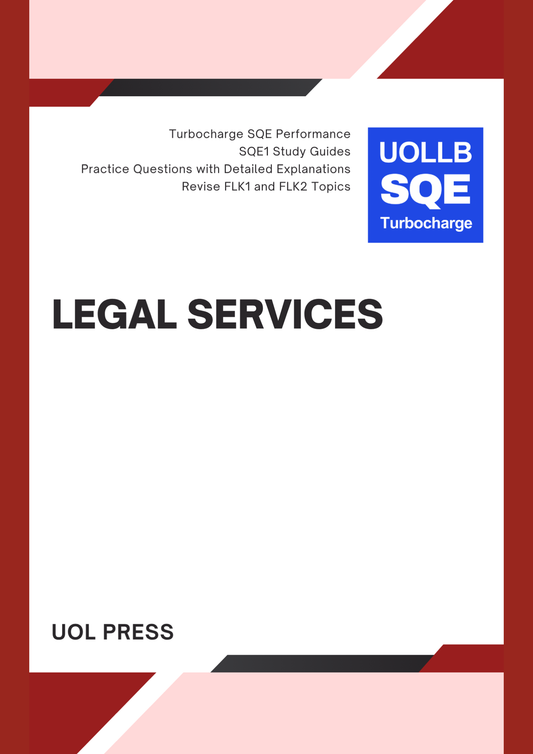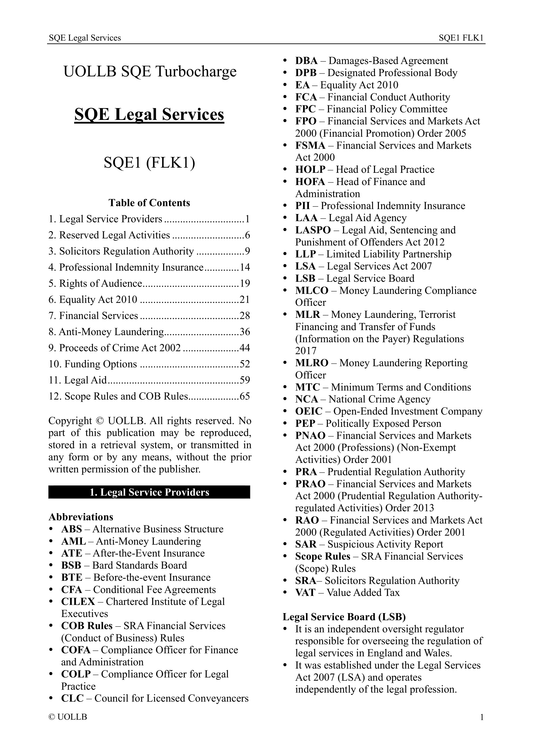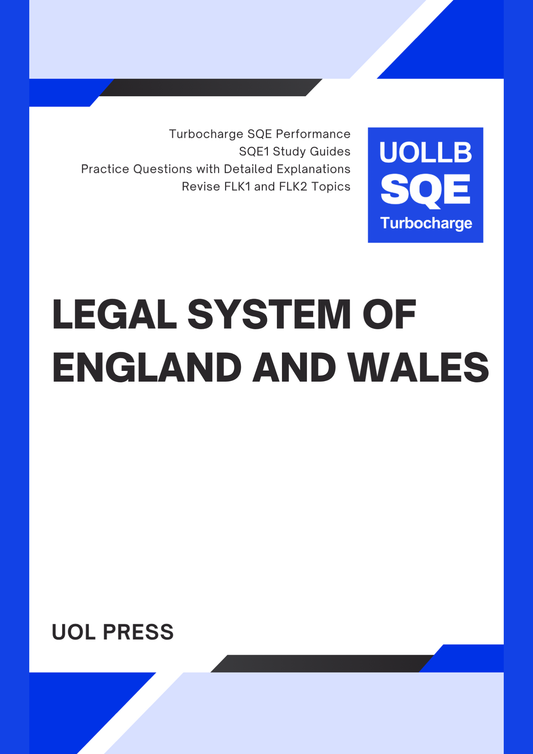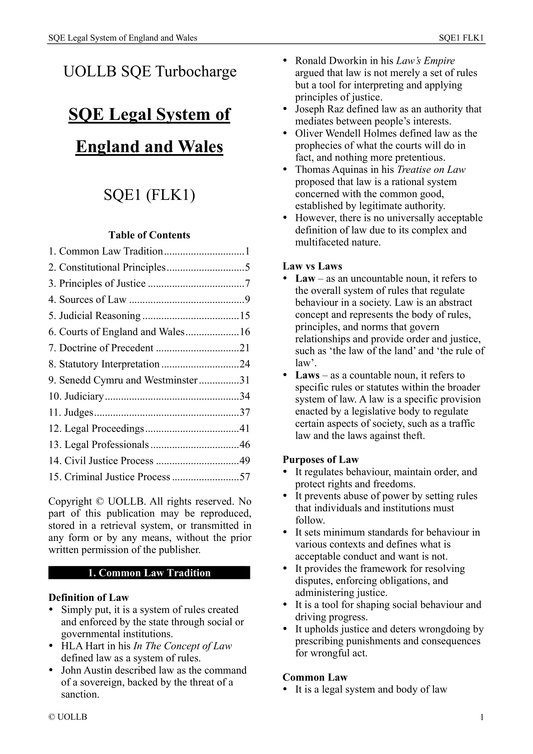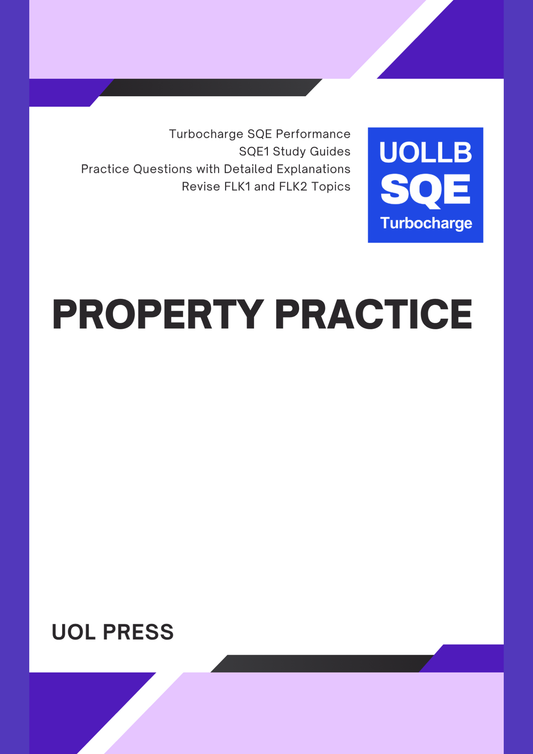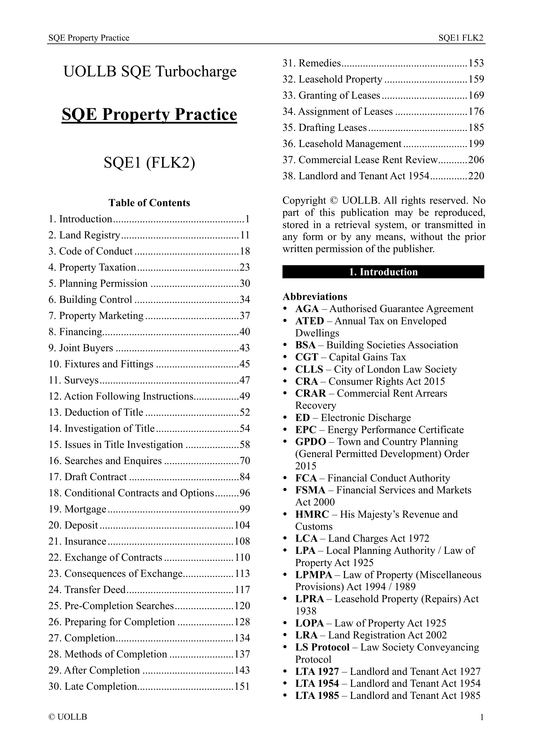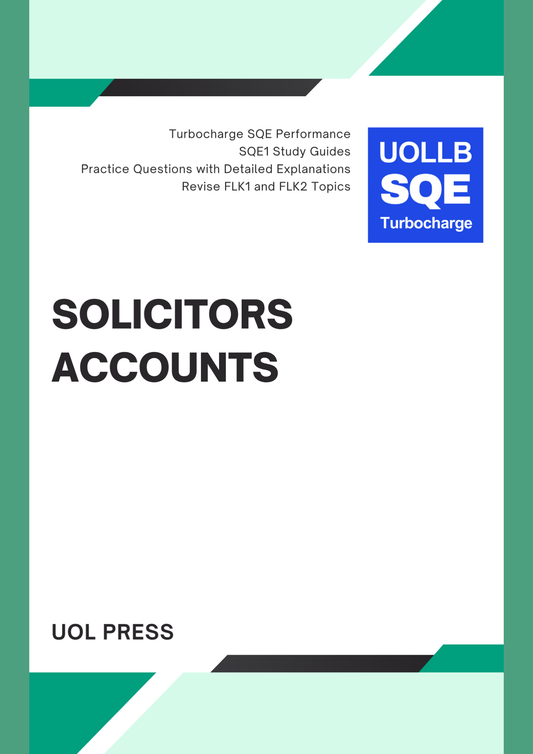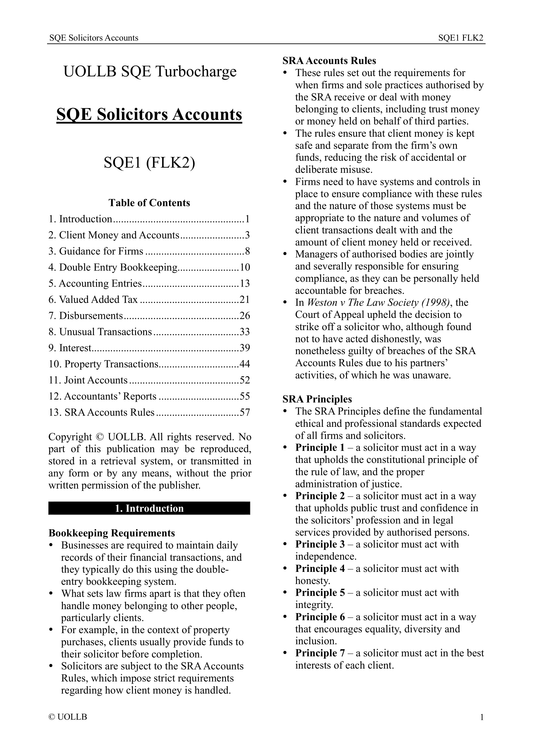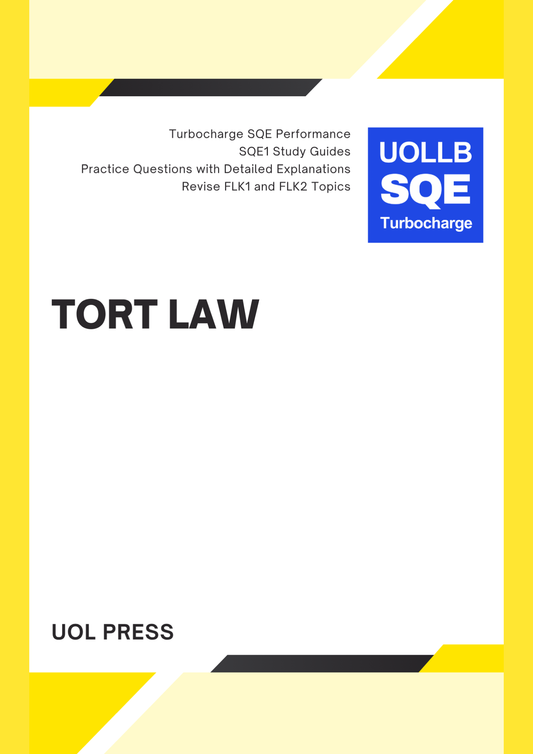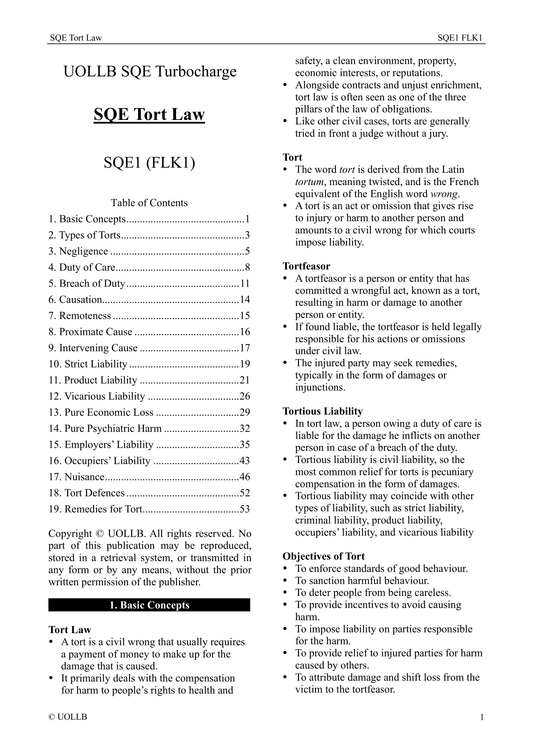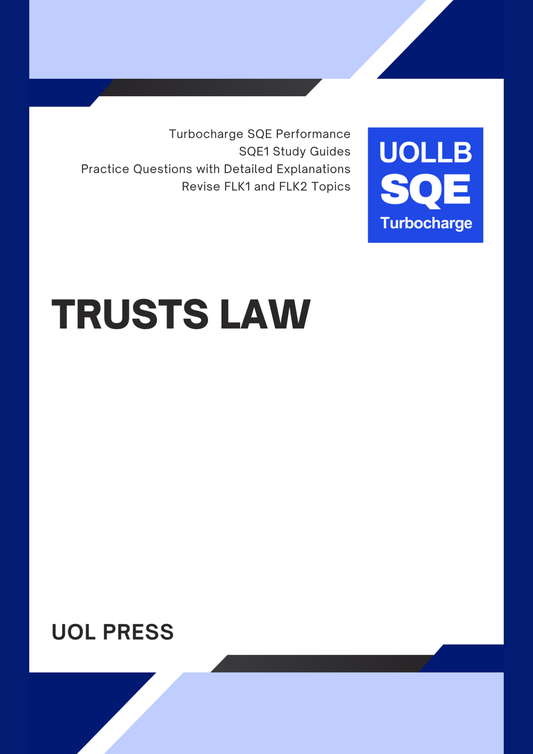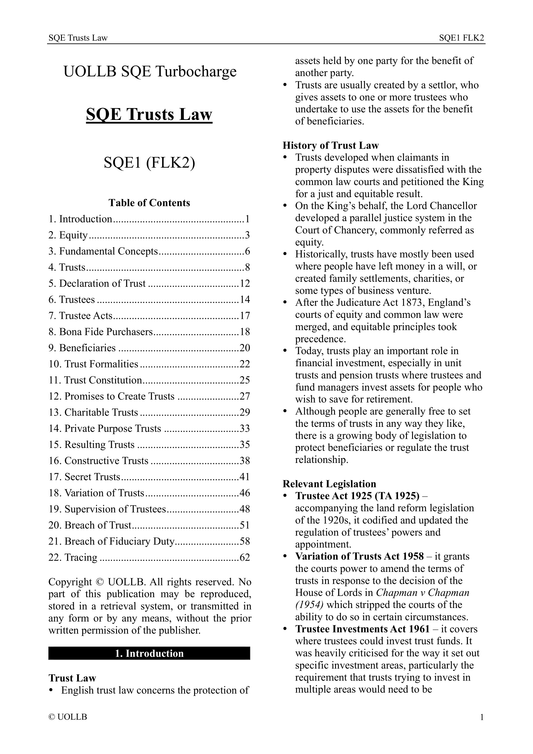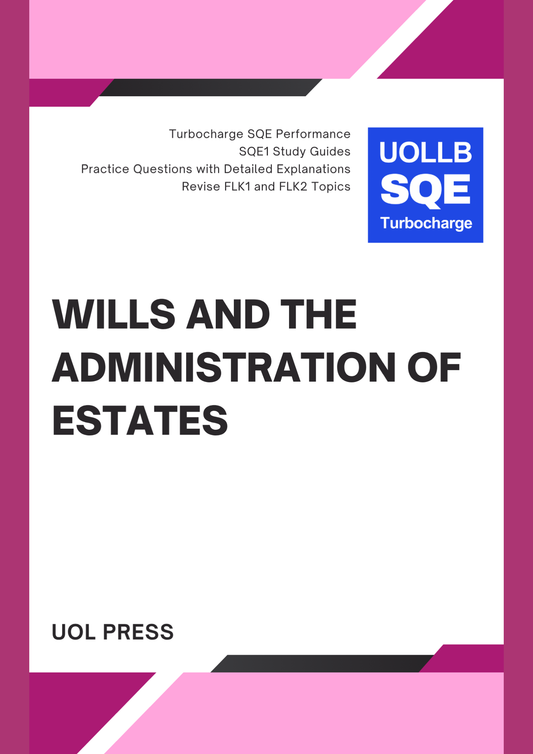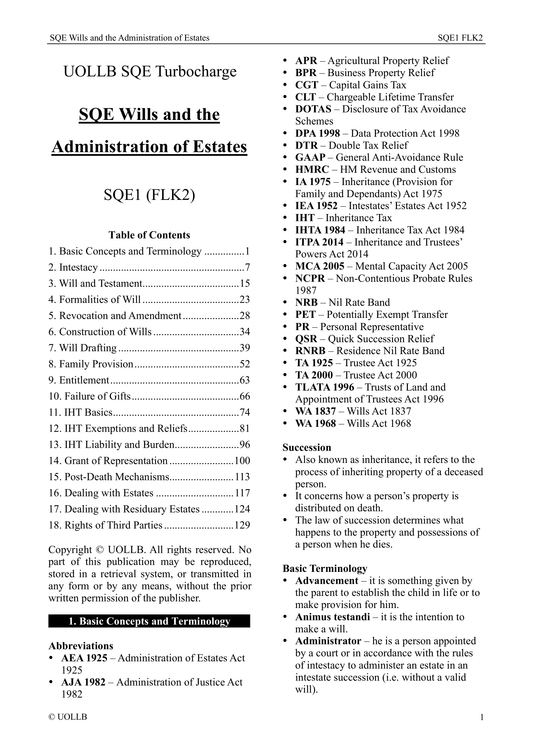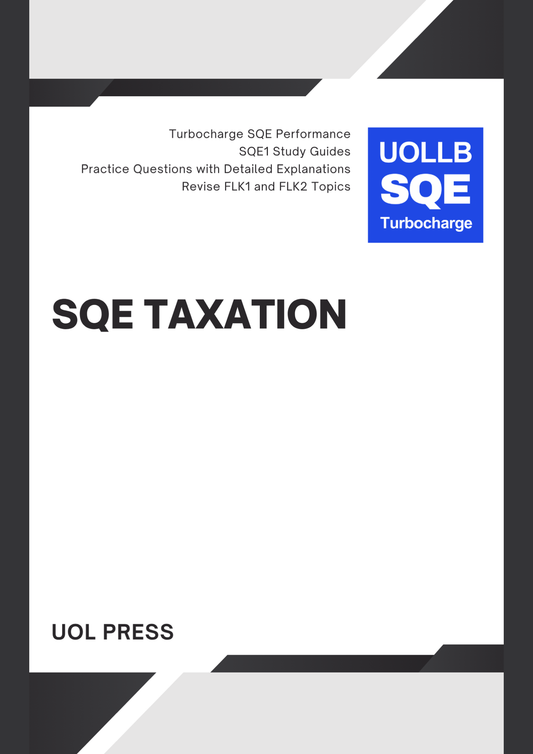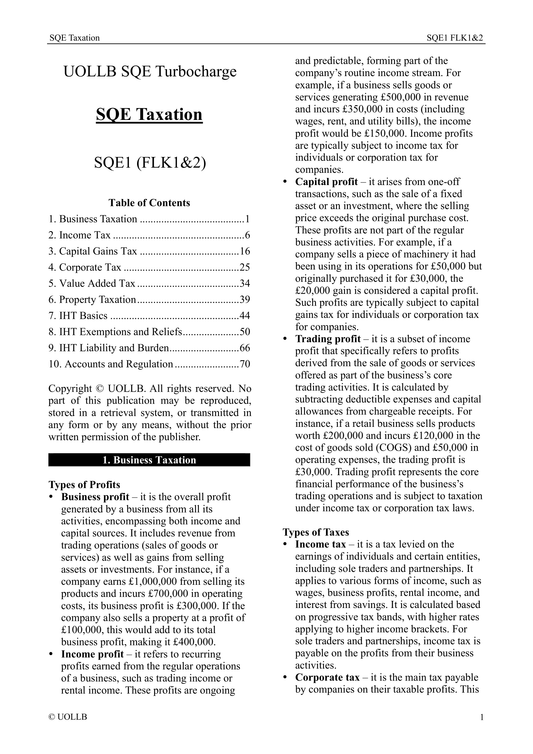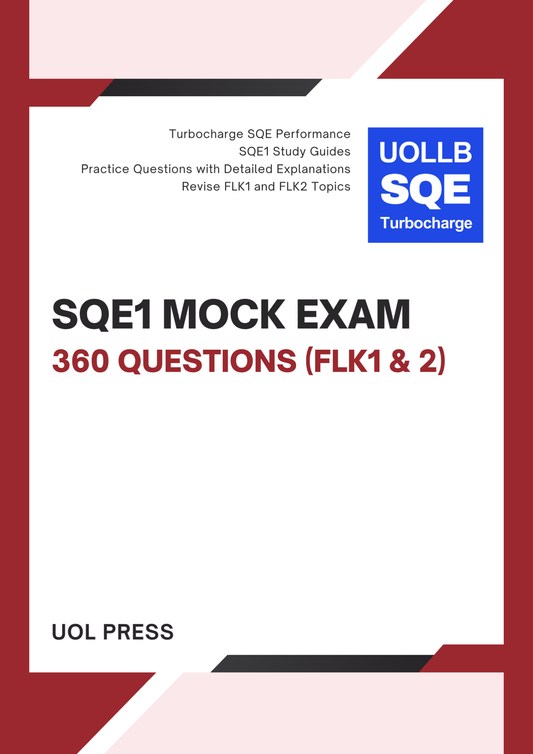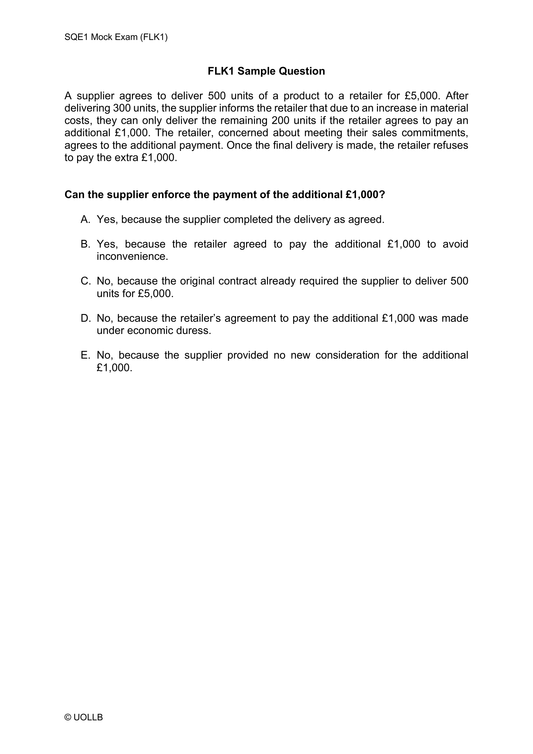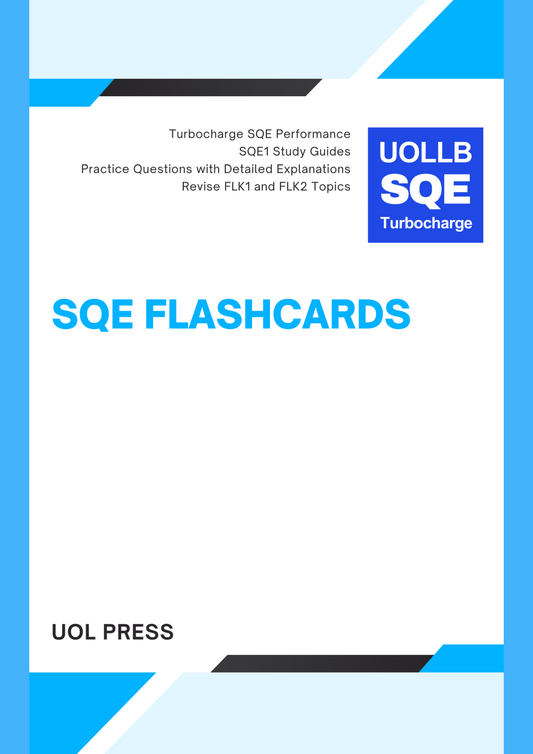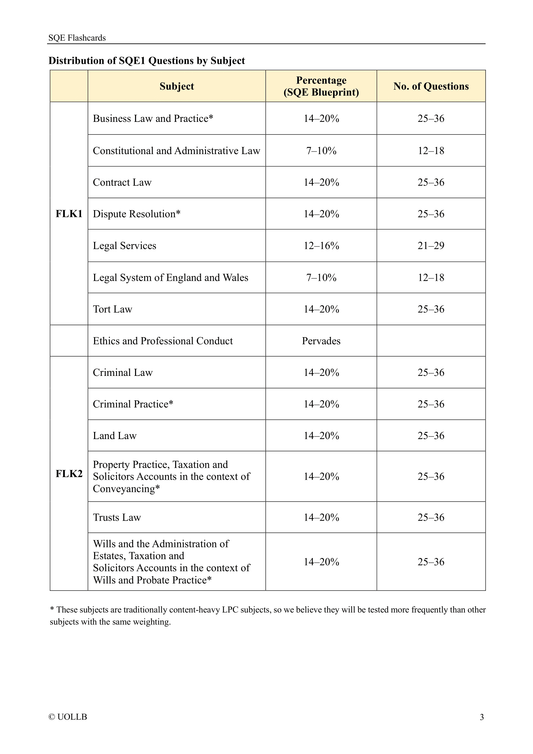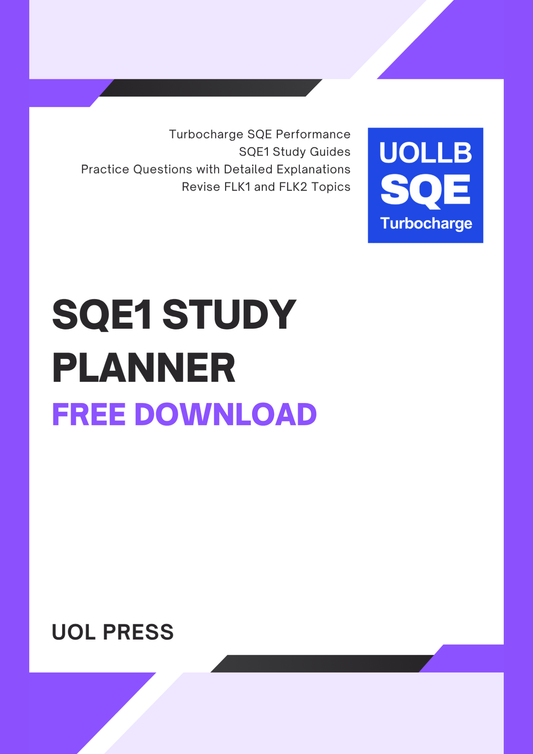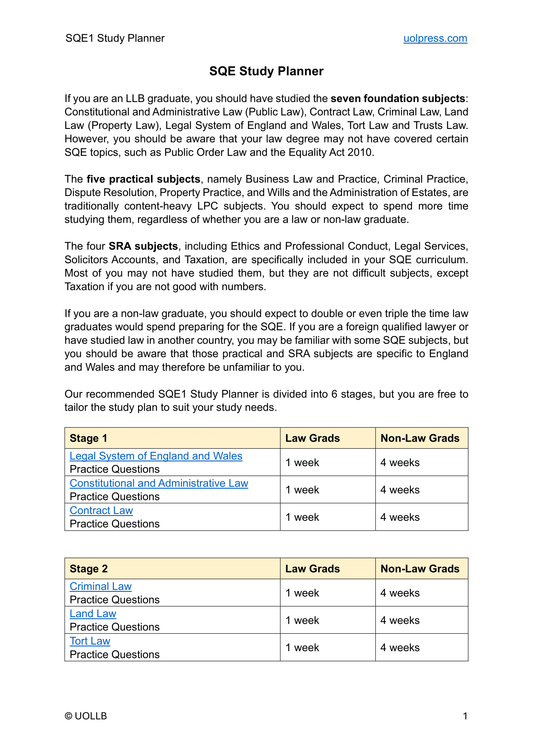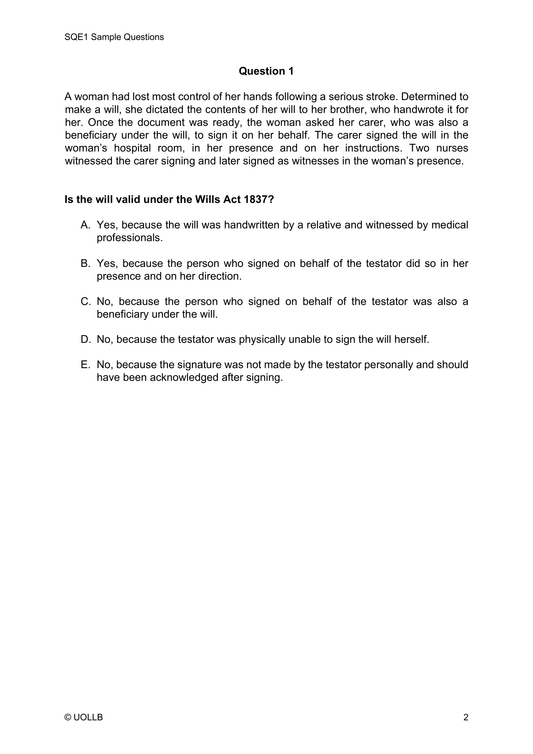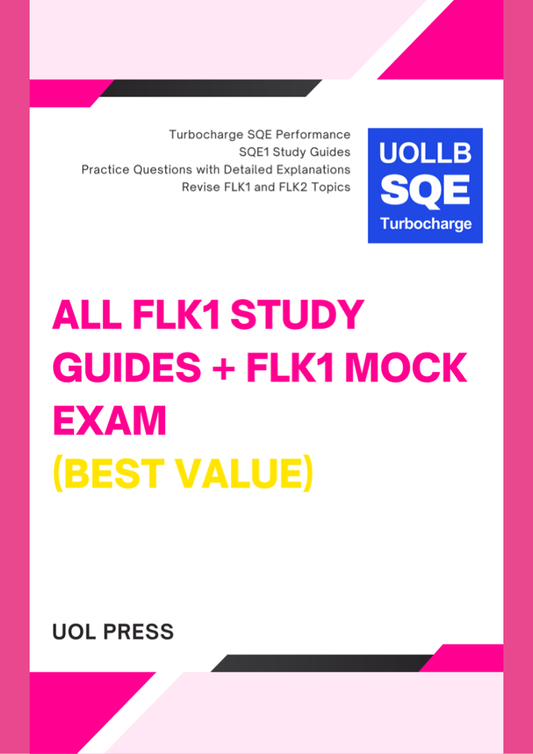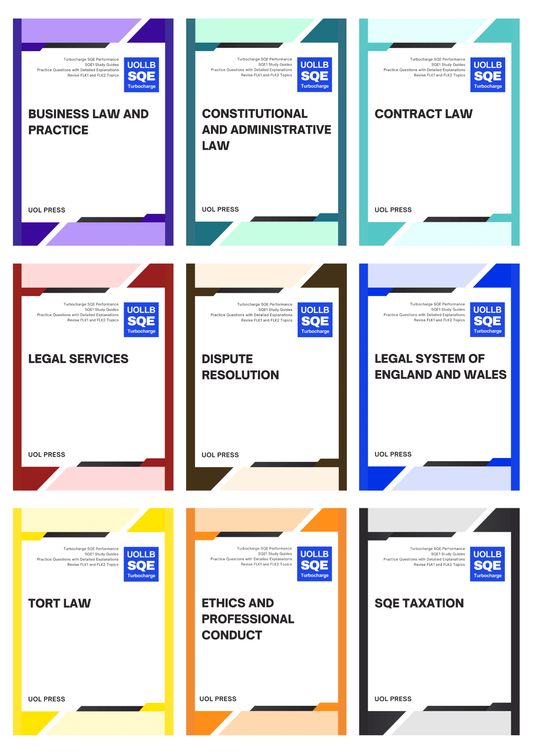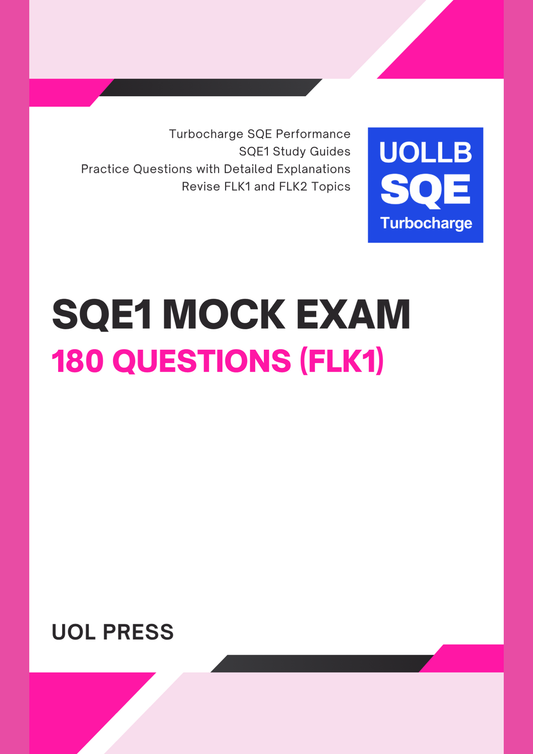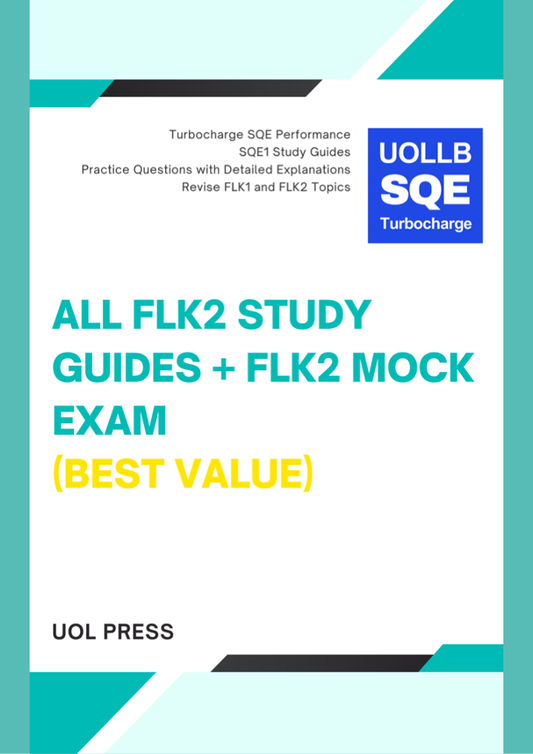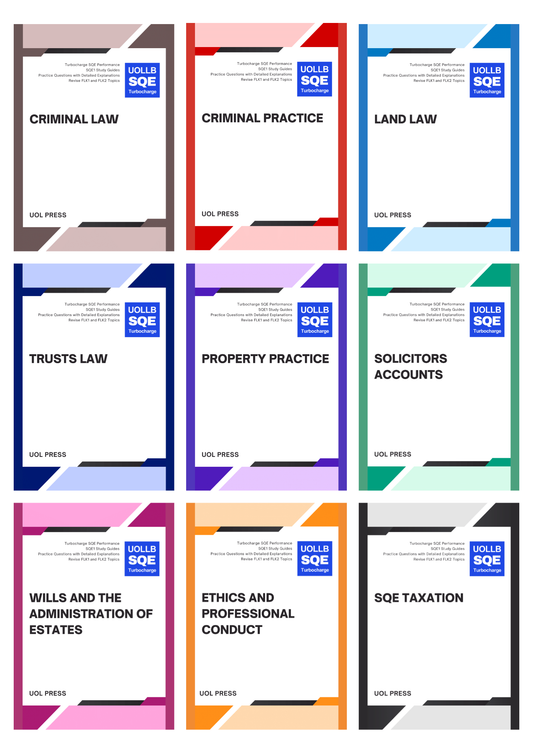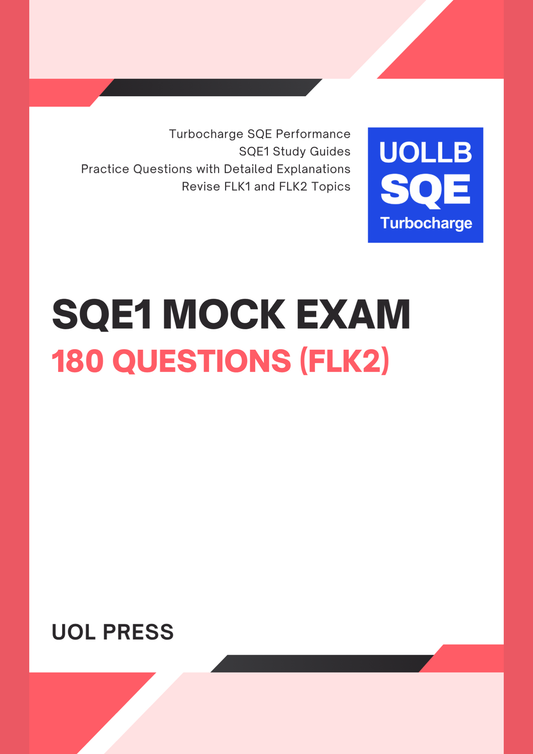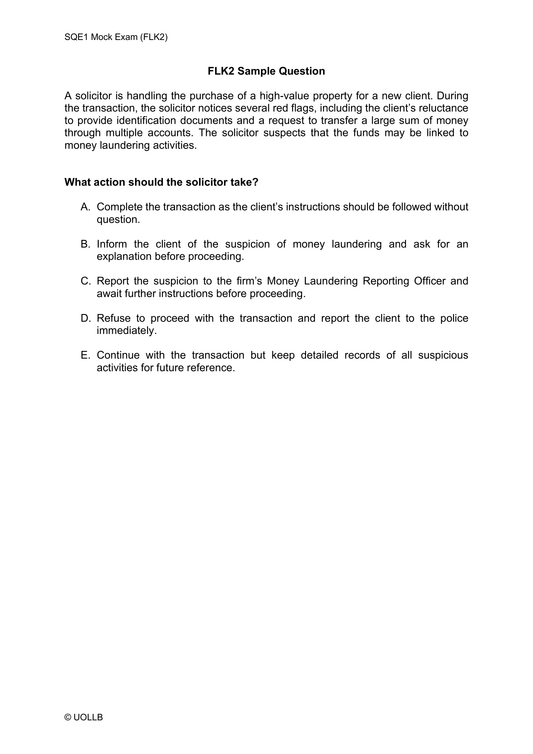Legal Authorities in SQE1
Share
In the SQE1 assessments, you are occasionally required to demonstrate your understanding of certain legal authorities, such as case names, statutory provisions, or procedural rules, which are widely recognised as key legal principles or important procedural steps. These legal authorities are typically well-established references in legal practice, and solicitors often refer to them as shorthand for particular legal concepts, rules, or steps in litigation.
For example, cases like Rylands v Fletcher are commonly cited in the context of the law of tort, specifically in relation to liability for the escape of dangerous substances. Similarly, CPR Part 36 refers to a key procedural rule under the Civil Procedure Rules, which governs offers to settle disputes and the consequences of refusing such offers. A statutory provision like a Section 25 notice, used in the context of the Landlord and Tenant Act 1954, is a legal step that may be required in commercial tenancy disputes. These names, rules, and statutory provisions are so integral to legal practice that solicitors need to understand what they represent and how they apply without needing to refer to detailed explanations every time.
In these specific instances, you are expected to recognise and understand such legal authorities, as they are widely used in practice to convey important principles or procedural steps. The ability to correctly apply these authorities is key to demonstrating competence as a solicitor. However, outside of these well-recognised cases and statutory provisions, You are generally not required to recall or cite specific case names or statutory references. The assessment is focused more on your ability to apply legal principles and knowledge practically, rather than memorising detailed case law or legislation.
Therefore, while some case names or statutory references must be known because they have become synonymous with a particular area of law or legal procedure, the SQE1 assessments prioritise the application of legal principles over the rote recall of legal authorities. This ensures that you are equipped with the practical skills needed to address real-world legal problems as newly qualified solicitors, rather than simply focusing on academic legal knowledge.
For example, cases like Rylands v Fletcher are commonly cited in the context of the law of tort, specifically in relation to liability for the escape of dangerous substances. Similarly, CPR Part 36 refers to a key procedural rule under the Civil Procedure Rules, which governs offers to settle disputes and the consequences of refusing such offers. A statutory provision like a Section 25 notice, used in the context of the Landlord and Tenant Act 1954, is a legal step that may be required in commercial tenancy disputes. These names, rules, and statutory provisions are so integral to legal practice that solicitors need to understand what they represent and how they apply without needing to refer to detailed explanations every time.
In these specific instances, you are expected to recognise and understand such legal authorities, as they are widely used in practice to convey important principles or procedural steps. The ability to correctly apply these authorities is key to demonstrating competence as a solicitor. However, outside of these well-recognised cases and statutory provisions, You are generally not required to recall or cite specific case names or statutory references. The assessment is focused more on your ability to apply legal principles and knowledge practically, rather than memorising detailed case law or legislation.
Therefore, while some case names or statutory references must be known because they have become synonymous with a particular area of law or legal procedure, the SQE1 assessments prioritise the application of legal principles over the rote recall of legal authorities. This ensures that you are equipped with the practical skills needed to address real-world legal problems as newly qualified solicitors, rather than simply focusing on academic legal knowledge.
